Testing times for South Africa's ANC
- Published
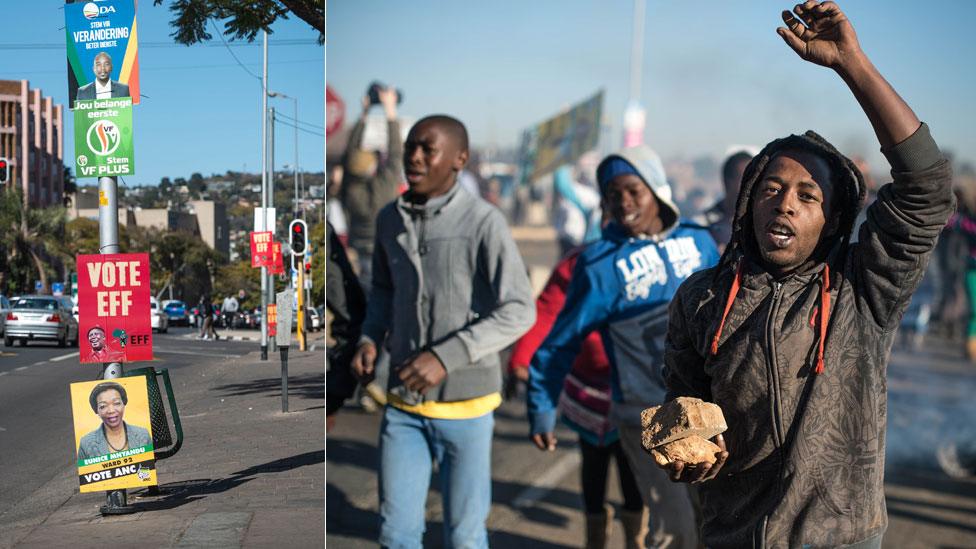
South Africa's African National Congress (ANC), which took power at the end of white-minority rule in 1994, is facing its toughest challenge - and not just from opposition parties in Wednesday's local elections.
The hotly contested campaign has been marred by internal squabbles within the governing party, which have turned violent.
The township of Atteridgeville, west of the capital, Pretoria, is one of several areas to have experienced some of this violence.
The working class community was outraged when the ANC foisted Thoko Dididza as the party's candidate for mayor of Tshwane, the metropolitan area which includes Pretoria.

More on the riots:


People took to the streets to express their displeasure; buses were burnt and road barricaded as they demanded that the current ANC mayor, Kgosientsho "Sputla" Ramokgopa be on the ballot again.
The violence spread across many other areas in Tshwane - and five people lost their lives.
Ms Dididza was chosen by ANC head office after the local party could not agree between "Sputla" and his challenger during the nomination process.
Such local feuding has been most prevalent in KwaZulu-Natal province, where 12 ANC councillors have been killed in the last two months. Last week, another was shot dead in the Eastern Cape province.
Free wi-fi
Atteridgeville itself was established in the late 1930s as a settlement for black people and now has a population of 200,000.

What do Atteridgeville voters want?

Vendor Moses Masemola is pleased with the ANC's improvements to Atteridgeville

Domestic worker Elizabeth Langa feels the EFF will deliver needed change

University student McDonald Hopane thinks the DA will provide jobs

It is Mr Ramokgopa's hometown, and is a great example of a politician understanding local issues and addressing them head on.
The paved streets are clean. It is like a mini Kigali, the Rwandan capital, known as the cleanest city in Africa.
To test the temperature a month on from the protests, I walk the streets of "Peli" as locals here sometimes call Atteridgeville.
In central Atteridgeville, I meet 62-year-old street vendor Moses Masemola.
"I am going to vote for the ANC because 'Sputla' delivered for us here. Look at this place. It is clean," he says.
However, 69-year-old Elizabeth Langa, who works as a domestic helper, says she admires the new opposition party the Economic Freedom Fighters (EFF) which promises to do more to tackle poverty and create jobs.
"I'm going to vote for the EFF because I want change," she says.
Down the road outside a local school I see a group of mostly teenage boys huddled together looking at their smartphones.
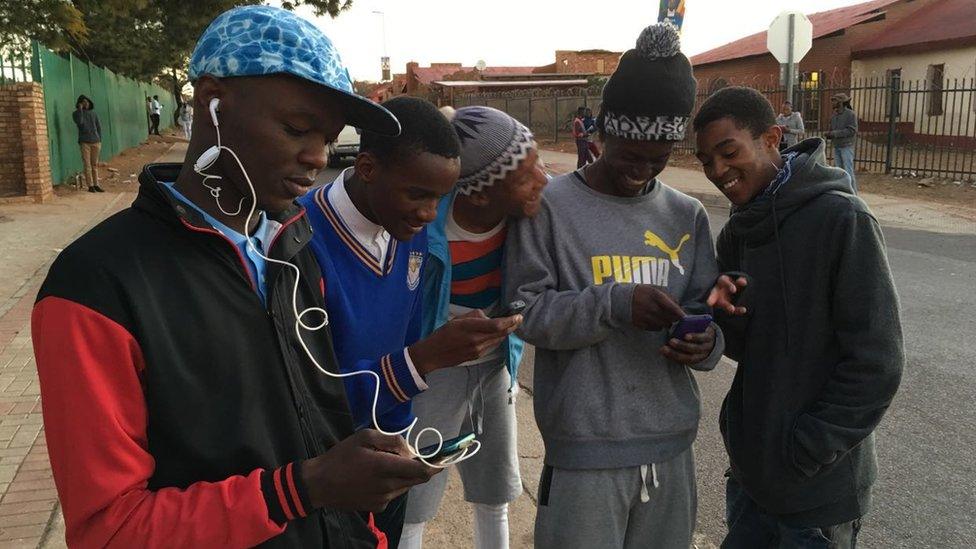
These youths are taking advantage of free wi-fi provided by the local council
They tell me they are using the free wi-fi provided to all residents by the city council - the signal is strongest near the school.
They are quick to point out that it is a Sputla initiative, one of his most popular.
However, one among them, 23-year-old McDonald Hopane, a third-year mechanical engineering student, explains that he is going to vote for the main opposition Democratic Alliance (DA).
"The ANC has failed to provide jobs. I'm about to finish my studies and it is clear that I will not have a job come 2017."
Twenty-year-old construction site labourer Happy Makhwiting stops to talk under a huge billboard of President Jacob Zuma.
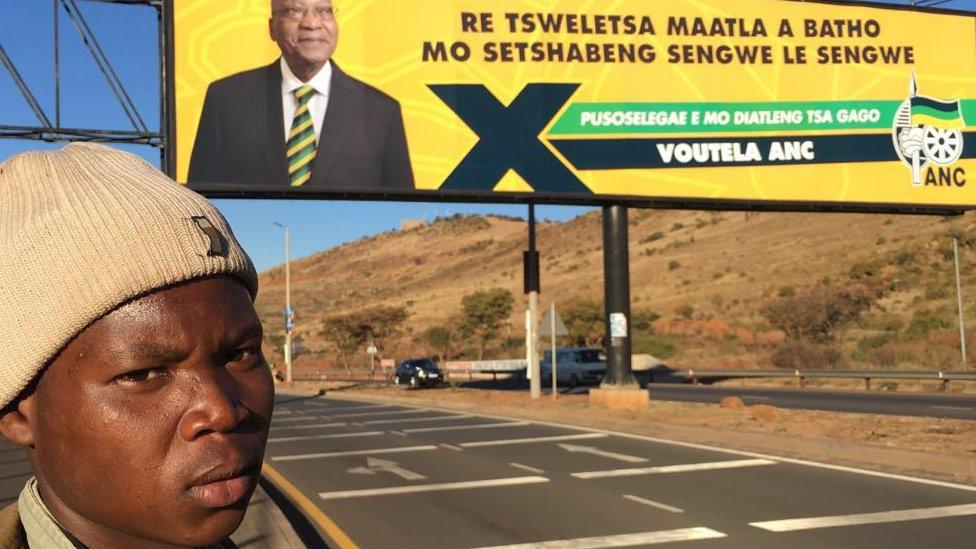
Labourer Happy Makhwiting feels loyalty to the ANC but not President Jacob Zuma
Pointing at the president and ANC leader, he says: "I will vote for the ANC but not because of this one. I'm voting because of what [Nelson] Mandela did for us through the ANC."
Mr Makhwiting says he would like to be in the army but has taken a low-paid job just to make ends meet.
More than freedom
But it seems the ANC cannot rely on such loyalty any more.
If opinion polls are anything to go by, the governing party is going to have a tough time holding on to some of the major metropolitan regions such as Tshwane, Johannesburg and Nelson Mandela Bay in the Eastern Cape province.
Local issues such as water, roads, refuse collection, community parks now mean more than anti-apartheid struggle credentials.
People are tired of being fed the same diet of "we liberated you from white-minority rule so keep voting for us".
What matters to young South African voters?
They want material change on the ground. They want better schools for their children.
They are also angry at the cancer of corruption creeping in - not just at a local level but also among those who hold high office.
Political commentator Justice Malala tells me this is a test for President Zuma's leadership.
"It's about national and local issues all at once. That's why you see President Zuma's face on the campaign trail. And the Democratic Alliance is using [its] leader Mmusi Maimane. There is a lot at stake," he says.
"On local issues, in Nelson Mandela Bay people will tell you about the undignified bucket toilets they still use.
"These issues are big for them. And in Alexandra township some say their lives are no different from the dark days of apartheid."
So this election, as much as it is about local issues on the ground, it also about the ANC's national score card.
- Published22 June 2016
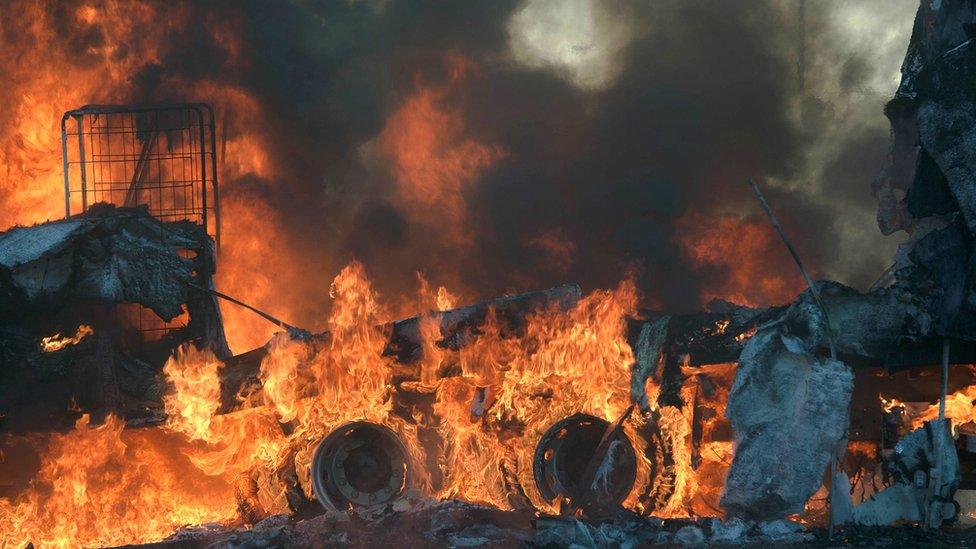
- Published14 June 2016
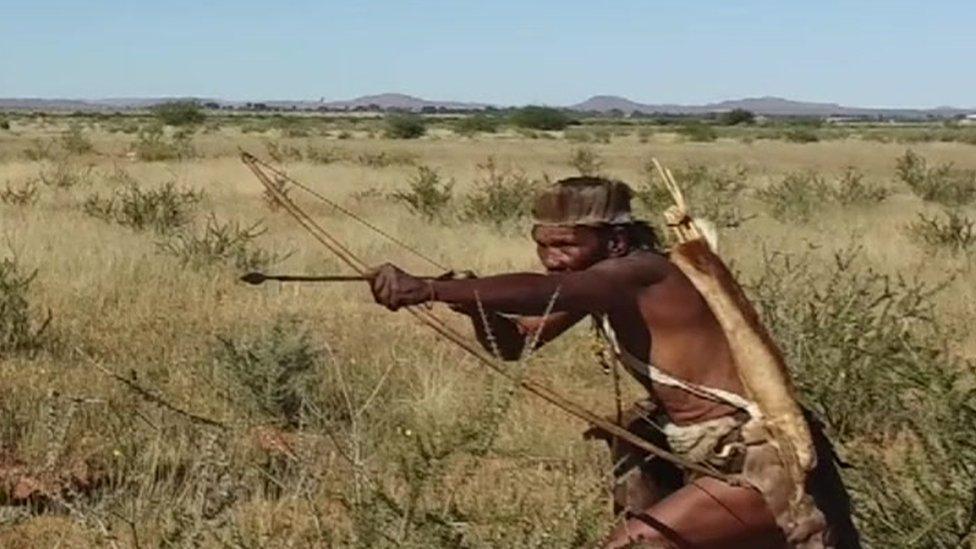
- Published2 April 2016
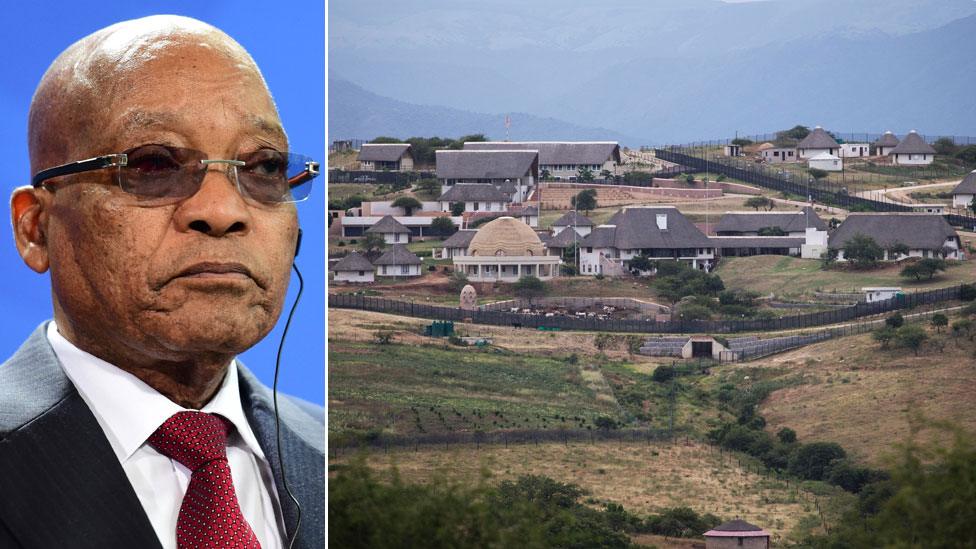
- Published6 January 2012